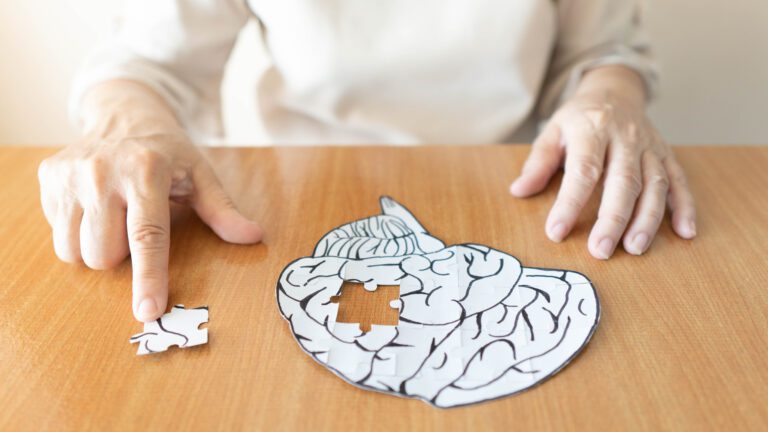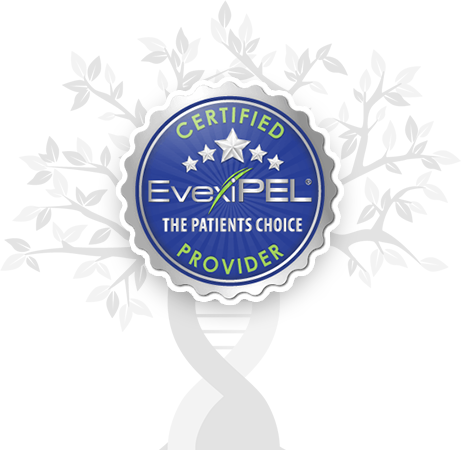If there is one thing that people talk about less than menopause, it’s perimenopause—that period of time, usually in a woman’s 40s, when hormone levels begin to drop and body changes start. It’s no wonder that it takes many women by surprise.
The reality is that the symptoms many women associate with menopause often start much earlier, years before ovulation and menstruation end. Often, they occur before women even start thinking about menopause. But recognizing the early signs of perimenopause and seeking timely treatment is important, as research suggests there is a critical window of opportunity for hormone replacement therapy to impact long-term health benefits. If you are experiencing symptoms, the best time to seek bioidentical hormones for perimenopause may be now.
What to Expect During Perimenopause
Many women imagine menopause to be the result of a gradual and steady hormonal decline. But perimenopause is characterized by wide fluctuations of hormone levels that typically last for 4-8 years.
Your body likes being in a state of equilibrium. As estrogen and progesterone begin to drop, a feedback mechanism stimulates the ovaries to temporarily produce more. This pattern can produce unexpected and unpredictable symptoms until the ovaries have stopped producing eggs and menstruation stops. The body then settles into its new normal.
Doctors who treat women during perimenopause, also known as the menopausal transition, often refer to the “core four”–the most common symptoms women experience in the years leading up to menopause. They are:
| Vasomotor: Hot flashes and night sweats are experienced by approximately 85% of women. These may start early during the perimenopausal period, with 55% of women experiencing hot flashes even before any menstrual irregularities. For about 25% of women, vasomotor symptoms persist for at least 5 years after menopause.
Vaginal: About 25% of women will experience vaginal dryness and painful intercourse during perimenopause. Unlike some other symptoms, these will not go away and may even get worse as time passes. Estrogen receptors in the bladder and urethra may also be affected by falling estrogen, resulting in urinary incontinence. Insomnia: Difficulty falling asleep, frequent awakening, and inability to fall back to sleep are some of the most common sleep problems that affect women during perimenopause. Hot flashes and night sweats may be complicating factors, as is the co-occurrence of anxiety or depression. Mood: Perimenopause is recognized as a time when women are at increased risk of both onset and recurrence of depression. Evidence suggests that women have a 2-3 times greater risk of developing depression during perimenopause even without a previous history of depression, and often experience more severe symptoms. The perimenopausal period is also associated with an increase in anxiety. |
While these are the most common, many other physical and emotional symptoms are possible.
When Should I Start HRT? The Critical Window Theory
Many women turn to bioidentical hormones for menopause symptom relief. But they often aren’t sure when to start, and they may wait until their discomfort is severe. This can be a counterproductive approach.
Research suggests there is a “critical window” during which hormone replacement therapy (HRT) can do the most good. The critical window theory—also known as the timing hypothesis—is based on studies that showed the earlier a woman begins taking replacement hormones, the greater the benefit. These benefits include not only symptom relief but reduced risk of serious health conditions that become more prevalent with age.
So when does the critical window start? According to current studies:
The critical window or ‘window of opportunity’ [is] the 10 years or so after the menopause, during which the benefits of [HRT] in healthy women exceed any risks.
After that window, the long-term benefits of HRT may be diminished. This includes protection against:
| Cardiovascular disease: HRT may reduce the risk of cardiovascular disease, which increases after menopause—but the degree of risk reduction may be influenced by when HRT is initiated. According to researchers at the University of Southern California, “Data supports a ‘window-of-opportunity’ for maximal reduction of [coronary heart disease] and overall mortality and minimization of risks with HRT initiation before 60 years of age and/or within 10 years of menopause and continued for 6 years or more. There is a substantial increase in quality-adjusted life-years over a 5–30 year period in women who initiate HRT in close proximity to menopause.”
Osteoporosis: Bone loss accelerates during perimenopause due to declining hormones. A 2018 study on asymptomatic perimenopausal women found that 37.6% had osteopenia (bone thinning) and 10% had osteoporosis (significant bone loss). Starting HRT early as possible may help to prevent these changes. Diabetes: HRT has been found to reduce the risk of developing type 2 diabetes and improve glycemic control in women under 60 with diabetes. Cognitive decline: Research suggests that HRT can confer protection against a variety of neurodegenerative diseases, including Alzheimer’s, Parkinson’s, and dementia, especially when therapy continues for a longer duration (>1 year) and when initiated during perimenopause. Perimenopausal use of HRT is also “associated with enhanced memory and hippocampal function later in life.” |
With more evidence emerging, women are increasingly becoming aware of the critical window theory and seeking HRT at a younger age to capitalize on the benefits. However, there is no single solution for all women. As Dr. Claudio Soares, Associate Professor in the Departments of Psychiatry and Behavioural Neurosciences, and Obstetrics and Gynecology, at McMaster University in Hamilton, says:
We cannot say that one size fits all, so it’s important that we start thinking about the critical timing in which to use estrogen, looking at different estrogen preparations and making decisions tailored to our patients’ needs.
For the best outcomes, women should work with their doctors to recognize and act on that critical window when treatment is best started to alleviate symptoms and safeguard their health. But it’s never too late to start HRT. Even if you are past the critical window, you can still experience symptom relief and gain significant benefits, and the North American Menopause Society recommends initiating or continuing HRT after age 60 in many cases.
Bioidentical Hormones for Perimenopause Symptoms
While the timing of HRT can be critical, the kind and quality of HRT may also play an important role. That’s why a growing number of women are choosing bioidentical hormones for perimenopause symptoms. These hormones are designed to match those produced by your body and used to eliminate the fluctuations that commonly trigger physical and emotional discomfort. With custom-compounded bioidentical HRT, you can be assured that your treatment is tailored to your body’s needs.
Being aware of common perimenopause symptoms can help you to recognize them in your own life. Knowing that there are effective treatment options should guide you to seek relief. With the support and wisdom of an experienced hormone health specialist, you can discuss your options and decide whether bioidentical hormones for perimenopause symptoms are the right choice for you.









